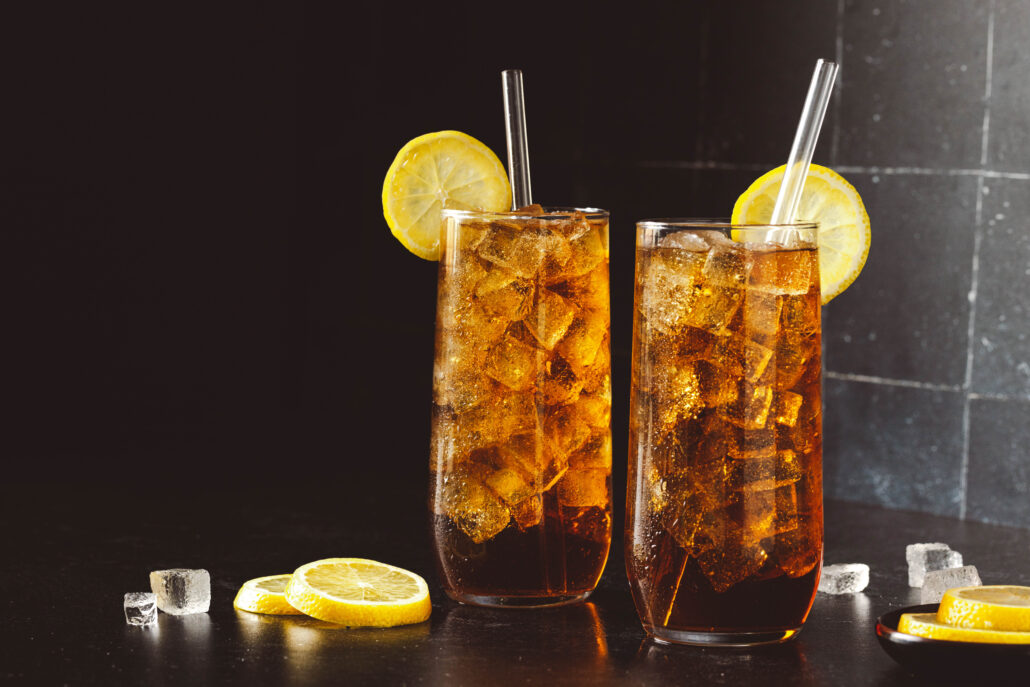CHECK OUT OUR MEDIA MENTION IN FOOD DIVE
30-May-2023
COMET looks to solve the prebiotic carbonated beverage market’s shelf stability problem and bring cans out of the refrigerated section.
Interest in both functional beverages and digestive health has been bubbling up for the last several years, creating the perfect opportunity for prebiotic sodas. The drinks provide consumers with the fizz they crave and the digestive health benefits of prebiotic dietary fiber.
Prebiotic sodas are one of the only bright spots in the soft drink category, which has declined in sales for the last two decades. Brands including Olipop and Poppi have succeeded by replicating conventional sodas’ nostalgic and recognizable flavors, including cream soda, orange, cola and lemon-lime. They use sugar substitutes and other ingredients, including prebiotic dietary fiber, apple cider vinegar, herbs, botanicals and minerals. The brands have bolstered the prebiotic category by educating consumers on the star ingredient’s role in feeding the trillions of good bacteria microbes in the gut.
Need further proof of prebiotic soda’s success? Olipop said its root beer sales surpassed A&W’s at a prominent U.S. retailer in February 2023. The company also said that 10% of its customers have completely replaced conventional soda, with the remainder regularly incorporating its sodas into their routines.
Prebiotic Soda’s Shelf Stability Problem
According to SPINS data, functional soda, including prebiotic varieties, now represents 14% of the digestive health category. However, there are looming threats that could hinder future category growth.
As inflationary prices continue to eat into consumers’ grocery budgets, the cans’ premium price tag may become too high for customers. Many prebiotic sodas have shelf stability limitations that drive up their price and require storing them in the refrigerated section of stores. While they can be stored at room temperature for a few days during shipment, they cannot be exposed to hot temperatures for extended periods. Many popular prebiotic dietary fibers used in sodas, including inulin, can break down into simple sugar and become less effective at higher temperatures.
According to reports, pH stability is also an issue for many prebiotic dietary fibers, which can degrade in more acidic environments. Prebiotic dietary fibers’ heat and pH stability also represent a problem during the pasteurization and retort parts of the beverage manufacturing process. Brands can mitigate this issue by overdosing on prebiotic dietary fiber in formulations assuming that a certain percentage will degrade. Additional ingredient cost is one of the chief drawbacks of this practice.
The Arrabina® Solution
COMET, a North American food ingredient manufacturer, has risen to the challenge and brings a science-backed solution to the beverage world. Its proprietary line of Arrabina prebiotic dietary fibers can survive shelf-life limitations and the demanding beverage manufacturing processes that often involve high heat, high pressure, and acidic environments.
Arrabina’s innate arabinoxylan structure provides clinically proven health benefits and formulation flexibility. COMET calls arabinoxylan “nature’s best dietary fiber” and says it has “perfected” the FDA-recognized fiber in its Arrabina. The ingredients’ multiple product grades “fit every formulation need,” including not only carbonated beverages but also gummies, confectionery and baked goods.
Testing shows that Arrabina prebiotic dietary fiber can be added to any beverage’s existing manufacturing process without concern over the ingredient’s viability. Testing conditions mimicked the most common processing conditions associated with functional food and beverage manufacturing.
Results show that the dietary fiber is heat tolerant up to 275 degrees Fahrenheit, typical of UHT or alternative heat treatment processes commonly used to create ready-to-drink beverages. Additional testing shows that Arrabina is even stable in pH conditions of 2, which allows it to be used in extremely acidic beverage formulations.
Gentler on the Stomach
Beyond formulation benefits, Arrabina’s unique arabinoxylan structure positively impacts GI tolerability, another threat to the prebiotic soda industry. Some prebiotics, including inulin, can trigger digestive discomforts like bloating, gassiness, and diarrhea.
At Stanford Medicine last year, researchers studied healthy adults who ate varying amounts of inulin and arabinoxylan. The study showed that while arabinoxylan helped promote good bacteria and decreased “bad” cholesterol, consuming high doses of inulin, around 30 grams daily, caused a spike in inflammation. COMET’s clinical trial results show that consumers can take up to 15 grams of Arrabina (five servings) daily without negative gut or bowel reactions.
Broader Applications, Broader Benefits
COMET’s opened a new dedicated manufacturing this year and will supply over four million kg of Arrabina annually. Companies can add the prebiotic dietary fiber to existing products at a relatively low additional cost per serving. According to COMET, this cost can easily be offset by the premium pricing associated with the ingredient’s added claims and potential production cost savings.
Looking to the future, COMET hopes Arrabina’s versatility, stability and GI tolerability will help companies add the benefits of prebiotic dietary fiber to more products. Adding the ingredient to the foods and beverages already a part of consumers’ routines can help 90% of Americans falling short of their dietary fiber needs.






